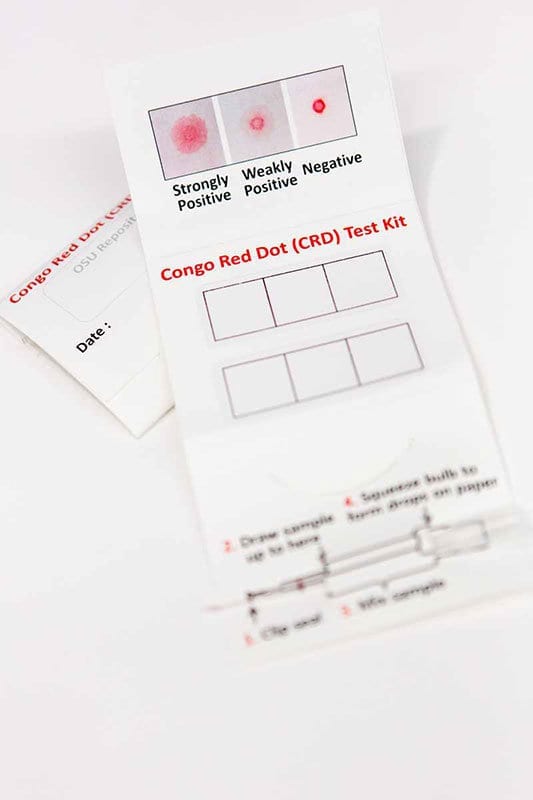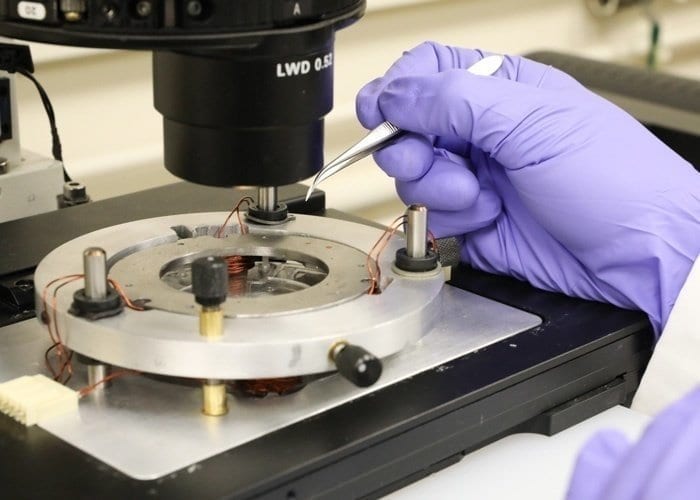
Pregnant women may receive critical treatment sooner with help of fast and easy test
About one in 20 women develop preeclampsia during pregnancy, which can be life-threatening to both moms and babies. However, it is difficult to diagnose because symptoms often mimic those of a normal pregnancy, such as swelling and headaches. Managing the condition early is critical to keeping mother and child safe, and now a new innovation may help start treatment sooner by quickly identifying preeclampsia with a simple urine test. In a new study, researchers at The Ohio State University Wexner Medical Center tested a fast and easy test to accurately diagnose the condition in just three minutes.
“Giving birth is the only cure for preeclampsia, but it can develop as early as the second trimester,” said Dr. Kara Rood, lead author of the study and maternal-fetal medicine physician at Ohio State Wexner Medical Center. “The quicker we identify women with the condition, the better chance they have of carrying their babies to full term and having a healthy delivery.”
The test uses a special red dye that reacts to unique proteins in the urine of pregnant women with preeclampsia. It can be given easily during a prenatal visit, providing an immediate diagnosis. “Without the certainty of this test, providers tend to be overcautious because this is definitely a condition that we can’t allow to go untreated,” said Rood. “This test helps us to quickly provide care to women with preeclampsia, while avoiding unnecessary admissions or even early deliveries.”
Researchers expect the new rapid test to be FDA approved in the next few years so that OB/GYNs nationwide can use it to identify cases of preeclampsia. Dr. Rood hopes it will also be available for women to use at home to monitor complications during pregnancy.
The Latest on: Preeclampsia
[google_news title=”” keyword=”preeclampsia” num_posts=”10″ blurb_length=”0″ show_thumb=”left”]
via Google News
The Latest on: Preeclampsia
- Hypertensive Disorders of Pregnancy Raise Risk for Postpartum Mortality for One Yearon April 25, 2024 at 11:30 pm
Hypertensive disorders of pregnancy (HDPs) are strong risk factors for pregnancy-associated mortality due to cardiovascular disease (CVD) at delivery through one year postpartum, according to a study ...
- Pharmacotherapeutic Options for the Treatment of Preeclampsiaon April 23, 2024 at 5:00 pm
Purpose: Pharmacotherapeutic options for the treatment of preeclampsia are reviewed. Summary: Risk factors for the development of preeclampsia include microvascular diseases, such as diabetes ...
- The Supreme Court will decide the fate of emergency abortions. Here is what’s at stakeon April 23, 2024 at 12:30 pm
Physicians in states with abortion bans may fear steep criminal sanctions if they provide an abortion in emergency cases, like ectopic pregnancies or preeclampsia.
- MedCity FemFwd: What Needs To Happen to Improve Preeclampsia Rates?on April 21, 2024 at 5:00 pm
Rates of preeclampsia — high blood pressure during pregnancy or after giving birth — are increasing in the U.S. In this episode, Auerbach discusses what needs to be done to improve ...
- Pregnancy complications linked to increased risk of early death even decades later, study findson April 15, 2024 at 8:01 am
Pregnancy complications, such as gestational diabetes or preeclampsia, may be linked to an elevated risk of death even decades after giving birth, according to a new study.
- I'm a Doctor and Even I Missed This Pregnancy Warning Signon April 11, 2024 at 5:00 pm
Between the demands of my job as a hand surgeon and mother to a toddler, preeclampsia was the last thing I wanted to worry about. I already had a period of bedrest for preterm labor at 28 weeks ...
- Dietary choices are linked to higher rates of preeclampsia among Latinason April 10, 2024 at 2:00 am
A diet based on cultural food preferences, rather than on U.S. government benchmarks, is more likely to help ward off the illness, a new study shows.
- Postpartum preeclampsia and breastfeedingon April 8, 2024 at 10:00 am
Postpartum preeclampsia is a serious high blood pressure condition that can cause health complications for you if it goes untreated. But high blood pressure medications used to treat it are generally ...
- Dietary choices are linked to higher rates of preeclampsia among Latinason April 4, 2024 at 5:00 pm
For pregnant Latinas, food choices could reduce the risk of preeclampsia, a dangerous type of high blood pressure, and a diet based on cultural food preferences, rather than on U.S. government ...
- Preeclampsia blood pressure range: What it is and what it meanson April 2, 2024 at 4:59 pm
Preeclampsia blood pressure range involves a systolic reading of at least 140 millimeters of mercury (mm Hg) or a diastolic reading of at least 90 mm Hg. A person must manifest this on two ...
via Bing News








